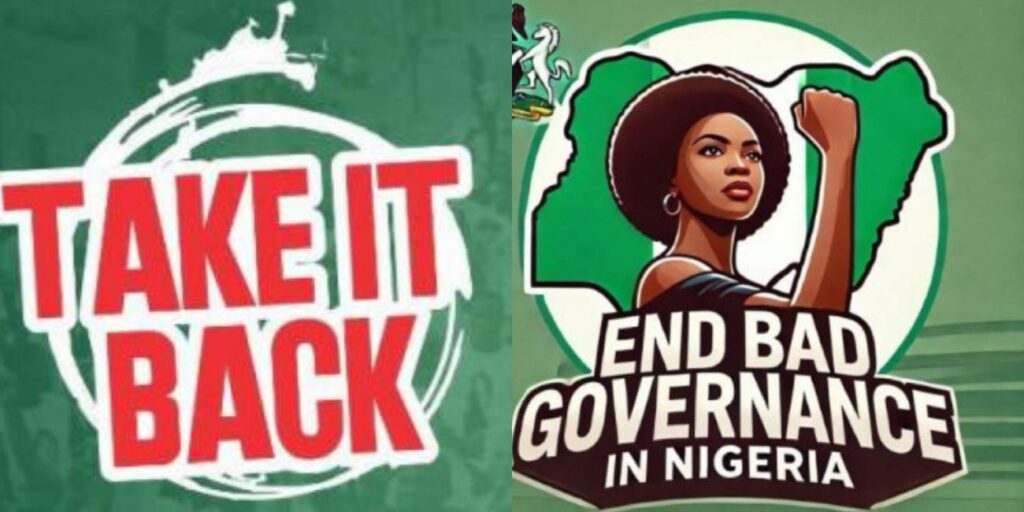
In the early hours of August 5th, the Take It Back Movement, a pro-democracy group, along with several concerned Nigerians, staged a peaceful protest at the National Stadium in Abuja.
The demonstration, however, took a dramatic turn when police officers intervened, chasing and arresting approximately six members of the movement, according to an anonymous grassroots organizer.
Undeterred by the initial confrontation, the protesters regrouped at Gudu Junction. There, they encountered a significant police and military presence. Tensions escalated as security forces fired tear gas at both protesters and nearby business owners, resulting in chaos and confusion. Many individuals sustained injuries amidst the pandemonium.
Comrade Manasseh Bem, the Take It Back Movement’s Director of Mobilization for the North Central region, vehemently condemned the actions of the police and military. He described their conduct as a betrayal of the people’s rights and democracy. Comrade Manasseh further alleged that screenshots circulating on social media revealed security forces planning to shoot protesters, suggesting a repeat of violent tendencies associated with the Tinubu regime.
Drawing parallels to the 2020 #EndSARS protests, particularly the Lekki Toll Gate massacre, Comrade Manasseh urged Nigerians to stand firm against a regime that, according to him, has continually made life difficult for the common people.
In a bid to ensure the peaceful execution of their events, the Take It Back Movement had previously notified the Inspector-General of Police about their intention to hold public meetings, rallies, and processions from August 1 to 10, 2024, at various locations across the country. The group had requested police protection, citing relevant sections of the Constitution and the Police Act.
The protests were part of a broader nationwide movement addressing the country’s economic crisis. The Take It Back Movement has been vocal in demanding the government take decisive action to alleviate the cost of living, provide free education, abolish the 1999 constitution, grant voting rights to Nigerians abroad, and release political prisoners like Nnamdi Kanu. Similar protests erupted in Gwarimpa and Nyanya, where police and military forces deployed tear gas against demonstrators, resulting in further injuries.
The unfolding events in Abuja and across Nigeria highlight the growing discontent among citizens and the challenges facing the current administration in addressing their grievances.
Can you imagine such impunity by the Nigerian government